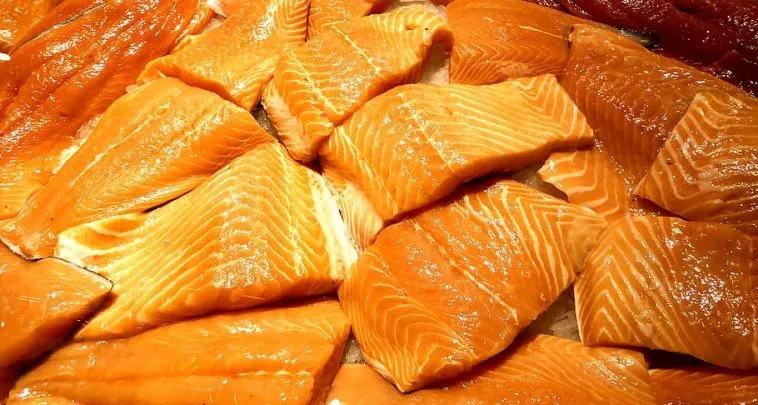by Colleen McMahon
Eat salmon, says one nutrition article. It is full of omega-3 fatty acids, the “good fat” that fights inflammation and has other good effects on the body.
No, wait, don’t eat it, says another article. Salmon is often high in cancer-causing pollutants (PCBs) and its production is not friendly to the environment. Which is it?
Both statements are true–you just have to dig a little deeper to know what they really mean, and then make your food choices accordingly. Salmon is indeed a fantastic source of those omega-3 fatty acids, and those acids really are good for you. You need them in your diet. And some kinds of salmon are more likely to have contaminants, and to add pollutants to the environment as well.
Farmed salmon, which is cheaper and does help avoid over-fishing of the wild variety, is fed concentrated fish meal, which also concentrates any pollutants in the fish used to make it. Pollutants can include dioxins and pesticide residues as well as PCBs. Farmed salmon is often treated with antibiotics and other substances to avoid diseases and parasites which can spread quickly in the contained environment. Waste and runoff from fish farms can also pollute the areas around them.
Your healthiest choice is to opt for wild-caught over farmed salmon whenever possible. Read the label carefully. Some farmed salmon will say so, but almost all wild-caught salmon will be marked as such. If salmon is identified as Alaskan, you can assume it is wild-caught. Salmon labelled as Atlantic, Canadian or Chilean is farmed. If it is not identified at all, you should assume it is farmed salmon.
If your local market does not carry wild salmon, it can be ordered online, though you can expect to pay a premium for it. You can also prepare farmed salmon in ways that are healthier; since the pollutants collect in the fat, cooking techniques like broiling or grilling cause some of the fat to drip off. You should also remove all the skin from any farmed salmon.
Eaten in moderation and correctly prepared, farmed salmon can be eaten more safely and you will still gain the health benefits. If you are pinching pennies, farmed salmon is significantly less expensive than wild-caught.
Finally, you can also opt for other foods that are high in omega-3 fatty acids such as walnuts, canola oil, and flaxseed. Or choose fatty fish that are further down the food chain like herring and sardines, which are not exposed to as many pollutants.






